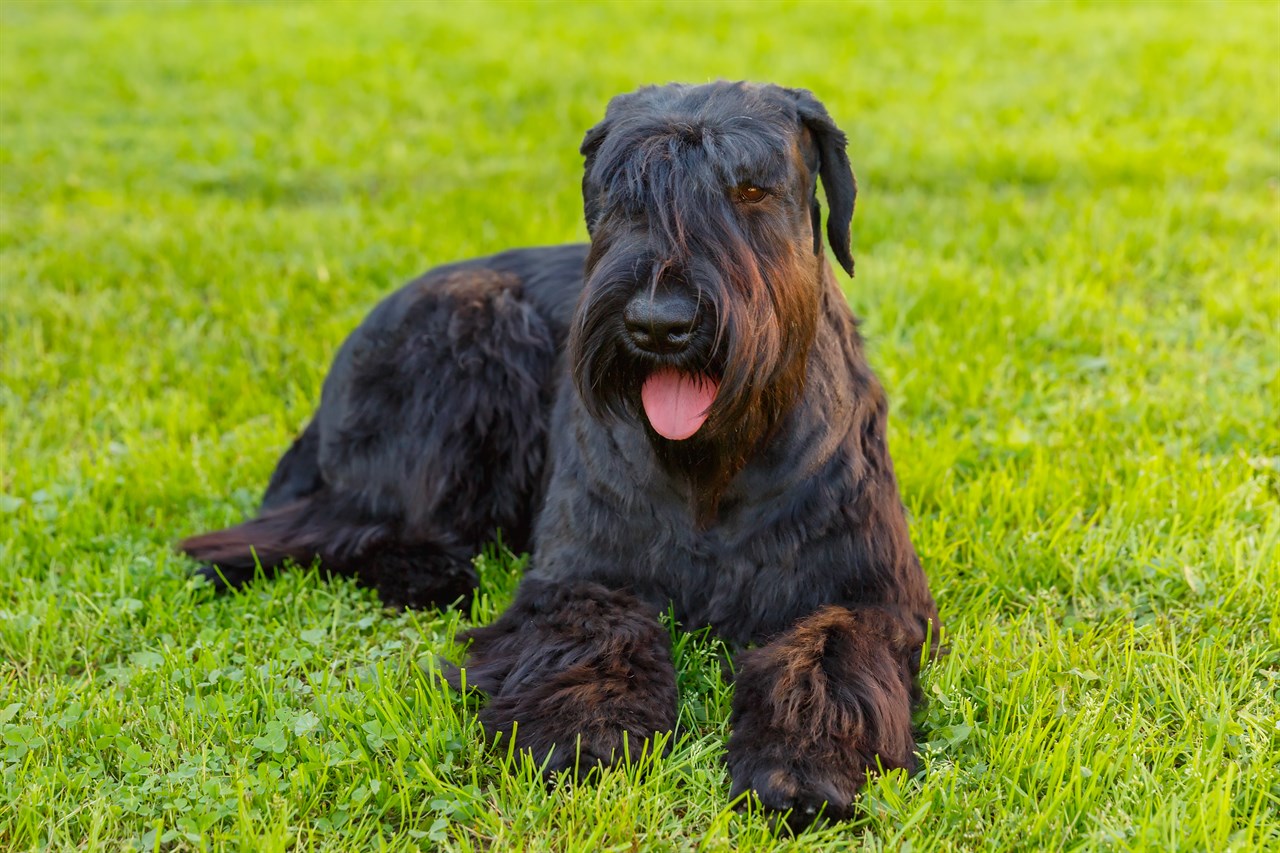Feeding Habits and Dietary Considerations for the Giant Schnauzer: Nourishing the Majestic Appetite

Proper nutrition is paramount for the health and well-being of the Giant Schnauzer, a breed known for its robust build and energetic disposition. Understanding their feeding habits, dietary requirements, and potential health considerations is essential for providing optimal nourishment throughout their life stages.
Balanced Diet
Giant Schnauzers benefit from a balanced and nutritionally complete diet. High-quality commercial dog foods specifically formulated for large breeds or active dogs are often suitable. These diets typically address the specific nutritional needs of Giant Schnauzers, taking into account their size, energy levels, and potential health concerns.
Protein Requirements
Protein is a crucial component of a Giant Schnauzer's diet, supporting muscle development, maintenance, and overall health. Look for dog foods with a moderate to high protein content, sourced from quality animal proteins. This is particularly important for puppies, as they are in a stage of rapid growth and development.
Fat Content
Healthy fats are essential for providing energy and supporting the health of the skin and coat. Look for dog foods with moderate fat content, including essential fatty acids like omega-3 and omega-6. These fatty acids contribute to coat lustre and promote skin health.
Carbohydrates and Fibre
Carbohydrates and fibre contribute to energy levels and digestive health. A balanced dog food should include wholesome carbohydrates such as grains, vegetables, and fruits. Adequate fibre content supports proper digestion and can help prevent issues like constipation.
Meal Portions and Frequency
Feeding portions should be determined based on the individual Giant Schnauzer's size, age, and activity level. Generally, adult Giant Schnauzers may be fed two meals a day, while puppies may require more frequent feeding. Avoid overfeeding to prevent obesity, a condition that can contribute to various health issues.
Hydration
Ensuring access to fresh and clean water is crucial for Giant Schnauzers. Staying well-hydrated is vital for overall health, including digestion, joint function, and temperature regulation. Monitor water intake, especially during warmer weather or after vigorous exercise.
Special Dietary Considerations
Giant Schnauzers may be prone to certain health issues, including hip dysplasia and bloat. Consultation with a veterinarian can help determine if there are any specific dietary considerations based on the individual dog's health status. Some owners opt for diets that address joint health or choose to feed multiple smaller meals to reduce the risk of bloat.
Regular Monitoring and Adjustments
Dietary needs can change as Giant Schnauzers move through different life stages. Regularly monitor their weight, energy levels, and overall health. Adjust their diet as needed, whether it's transitioning to a senior dog food or adjusting portion sizes to maintain a healthy weight.
Conclusion
In conclusion, providing the right nutrition for a Giant Schnauzer is an integral part of responsible dog care. Tailoring their diet to their size, age, and activity level ensures they receive the essential nutrients for optimal health and longevity. Regular veterinary check-ups can provide guidance on their specific dietary needs and address any health concerns that may influence their feeding habits. With thoughtful attention to nutrition, owners can contribute to the vitality and well-being of their majestic Giant Schnauzer companions.
Schnauzer (Giant) puppies for sale
- Find Schnauzer (Giant) puppies for sale in ACT
- Find Schnauzer (Giant) puppies for sale in NSW
- Find Schnauzer (Giant) puppies for sale in NT
- Find Schnauzer (Giant) puppies for sale in QLD
- Find Schnauzer (Giant) puppies for sale in SA
- Find Schnauzer (Giant) puppies for sale in TAS
- Find Schnauzer (Giant) puppies for sale in VIC
- Find Schnauzer (Giant) puppies for sale in WA